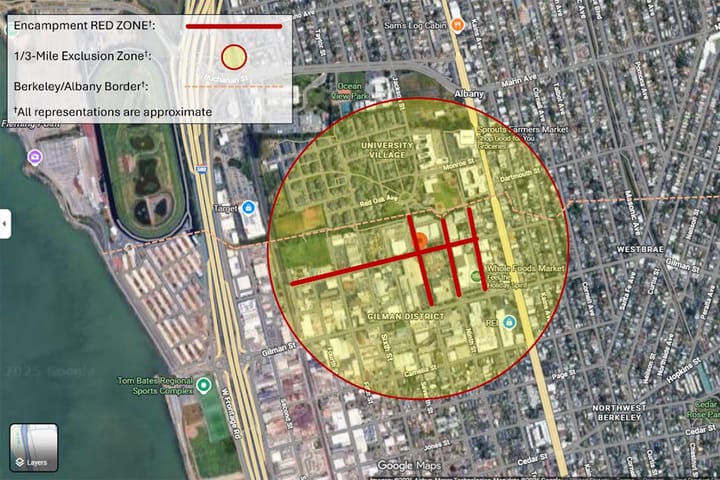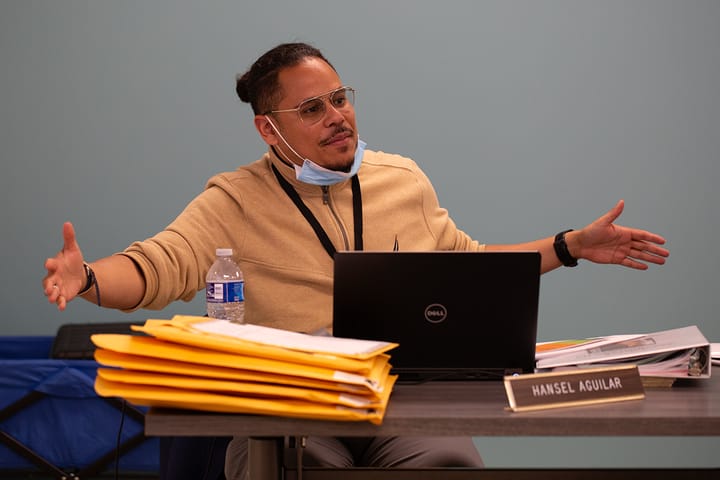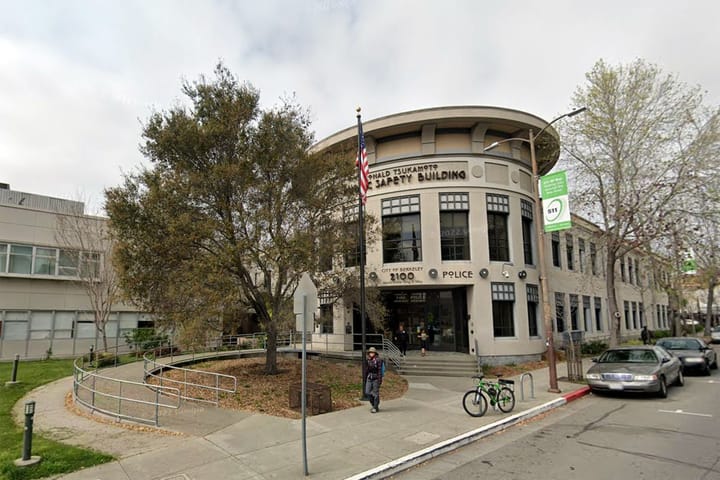Public begins to push back on Berkeley police encryption plan
Other police agencies in California have found solutions that avoid complete encryption.
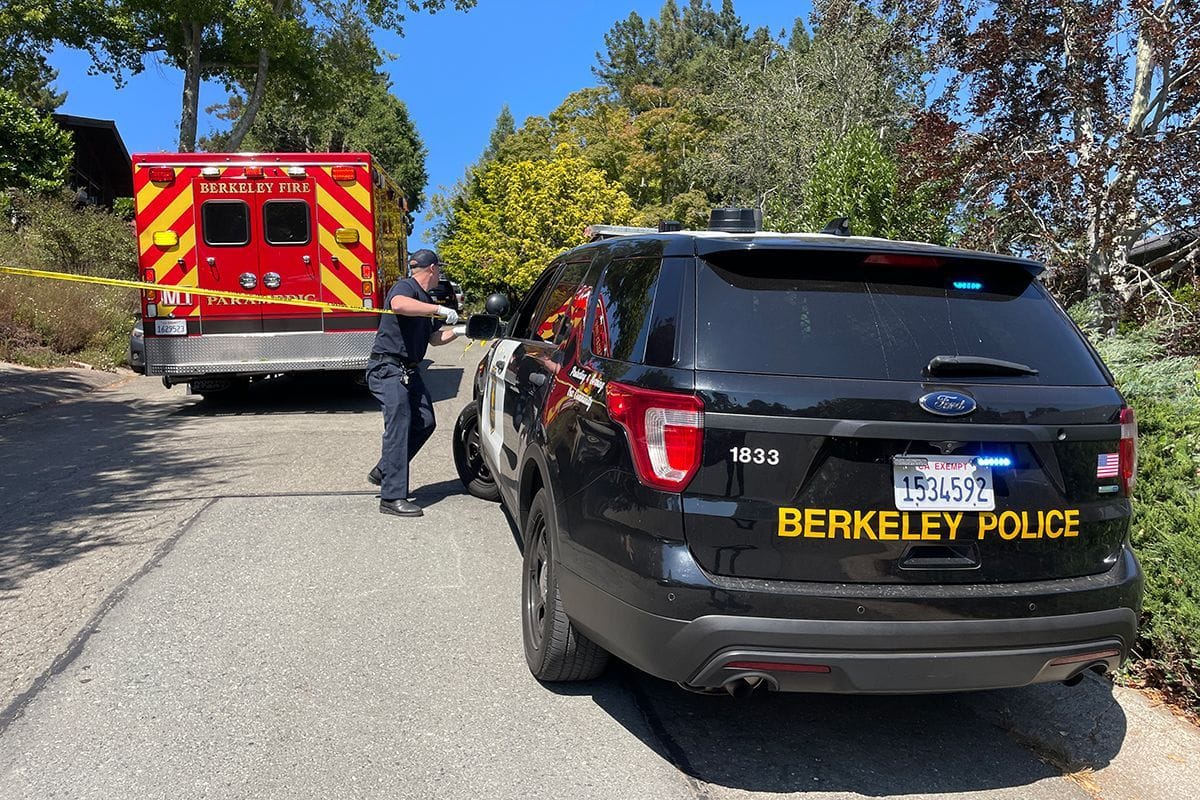
In recent days, local residents and advocates have begun to speak out about a push by Berkeley police to make all their radio transmissions private.
Some said they listen to online scanner apps when they hear explosions or see officers nearby, and wish to find out why.
"When we hear sirens, we put on the scanner," said Brett D'Ambrosio. "If there's a pursuit of a suspect in my neighborhood, I want to know."
Longtime Berkeley resident Eric Scheie said his top concern is something else.
"It's a question of having free access to information, as well as basic transparency and accountability," Scheie said. "When I was on the Police Review Commission, I know that we would have unanimously opposed making police radio communications secret except when necessary for public safety. Secrecy in government has a bad track record, and I am sorry to see that the city of Berkeley may succumb to it."
Walk Bike Berkeley, a local advocacy group focused on traffic safety, said it was troubled to learn about the recent move to encrypt.
"BPD’s open radio dispatches are a critical resource for advocates — enhancing our ability to monitor, track and report on street safety related incidents," the group said Monday in a prepared statement. "Open radio traffic has alerted us to severe collisions involving pedestrians and cyclists, and provided more granular detail than might be available otherwise."
The group said that's been the case for a number of fatal crashes in Berkeley, which led to the deaths of Elise Lusk, Ben Brown, Roderick Nared and Julia Elkin, among others.
For Walk Bike Berkeley, radio dispatches offer a chance to dig for deeper details: Its members often go to the scene to collect timely witness accounts and documentary evidence, which can prove essential in understanding what actually happened.
"Awareness of these incidents among the broader community is a crucial aspect in both highlighting dangerous corridors and intersections, as well as for advocating to improve the safety at those locations and citywide," Walk Bike Berkeley writes.
While many rely on the Citizen app and online scanners — which will no longer carry Berkeley police transmissions if the City Council approves the police request next week — some acknowledge that ready access is part of the problem, making it too easy for people (including criminals) to access sensitive information.
The move to encrypt police traffic has a long history in California. Aside from Berkeley, Alameda and Contra Costa counties recently pulled the plug.
Berkeley police had pledged to keep their channels open but now say it's not feasible.
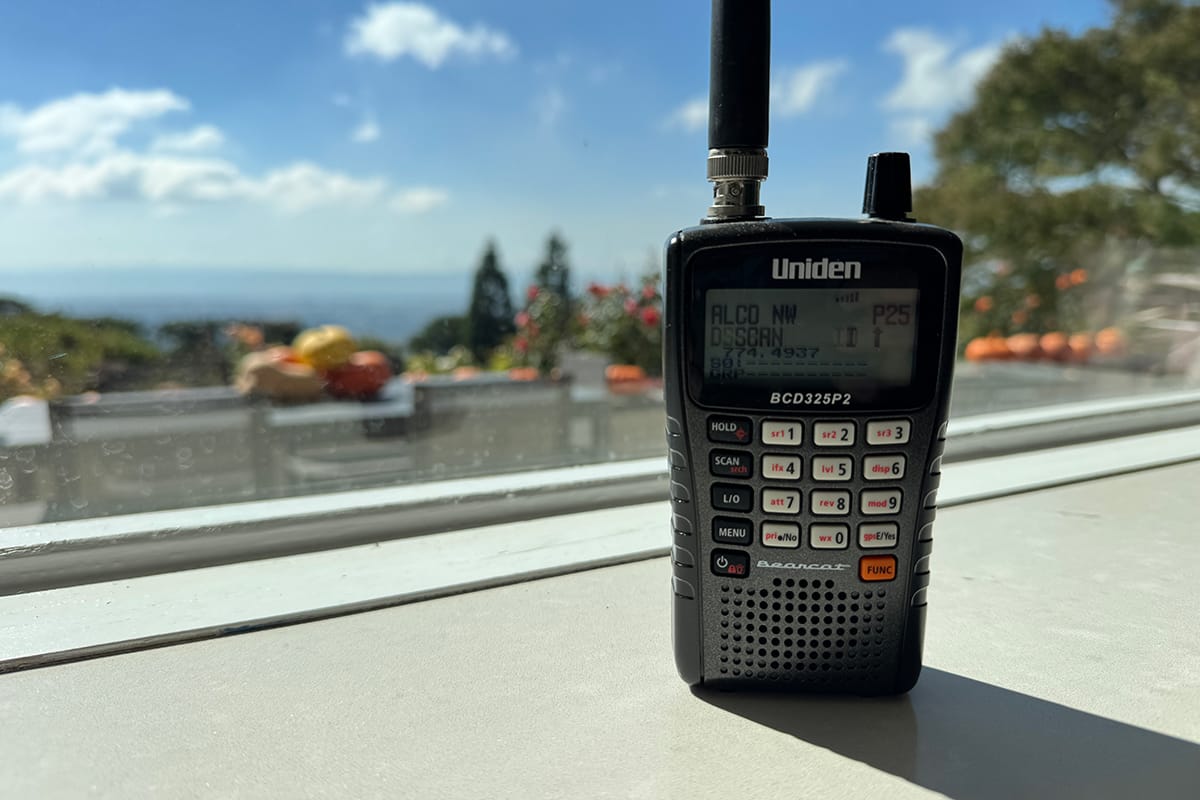
To justify the shift, many agencies, including Berkeley, point to a 2021 memo from the state attorney general's office requiring that personal ID numbers be encrypted.
Berkeley police say they are also concerned about officer safety and that pervasive short staffing — for officers as well as public safety dispatchers — has only exacerbated matters.
Police say the encrypted channel they use to look up detainees is often offline because there aren't enough dispatchers available. One Berkeley officer estimated that the encrypted channel is now unavailable 40% of the time.
That means officers must look up key details on their own, which requires more police on a stop. And adequate backup isn't always available, Berkeley officers say.
The answer to that is to fix staffing and ensure that rules about sensitive data are followed — not to embrace sweeping government secrecy, said Ginny LaRoe, advocacy director for the First Amendment Coalition.
"Community members and journalists alike rely on police radio traffic to make news coverage decisions, to fact-check things police are saying, to know in real time what's going on, whether that might be a tragedy like a shooting or a police pursuit or an earthquake or a fire," LaRoe said. "What people may not understand is the role police radio traffic plays in helping the press and public perform a watchdog role."
She continued: "It is not in the public interest to only be able to rely on press releases."
Emergency dispatches help reporters know what questions to ask and allow them to include nuance about incidents that may never otherwise come to light, or be significantly delayed.
That's particularly true in California — where police reports and records are tightly guarded by authorities. Many of those records never become public amid police claims of "open investigations" even decades after the fact.
As a result, real-time dispatches have often helped illuminate the dynamics of serious incidents, along with routine police operations and alleged misconduct.
LaRoe said there have been examples across the nation where police radio traffic helped a journalist "piece together information that produced questions or insights or exposed lies that might have been told."
"In the state of California, where we have a high level of secrecy over police records and police personnel files, it's especially important we don't lose more ground by letting police radio traffic go totally silent," she continued.
Police say the Berkeley Fire Department will continue its public broadcasts, which will provide a window into some of the city's emergency calls. But not the ones that only involve police.
And the fire dispatches, in general, are less timely and more limited in scope.
LaRoe credited many police agencies, including Berkeley, with having taken a balanced approach — to date — by putting sensitive information on encrypted channels and leaving the rest alone.
In years past, and even recently, the Berkeley Police Department has said it believes this commitment to transparency is critical to building community trust and upholding Berkeley values.
LaRoe said the current moment of federal overreach and reduced transparency make local police radio encryption even more problematic.
"Californians and Berkeley leaders have righteously expressed concern about the law enforcement tactics being used by federal agents," she said. "It's really important that Berkeley officials have that same level of concern over local law enforcement and government operations."
LaRoe called on Attorney General Rob Bonta's office to review the 2021 memo that has provided the foundation for California's wave of police encryption to "reconsider whether it is serving the public interest or if there is better guidance."
Over the years, there have been several legislative efforts, dating back to at least 2019, to lobby for media access to police broadcasts, at the very least.
Two of the most recent attempts (SB 1000 and SB 719) came from state Sen. Josh Becker, who represents San Mateo County and part of Santa Clara County.
"Since the 1920s, news outlets, journalists, and the public have had access to police radio communications. This access is critical for police transparency, accountability, and reporting public safety news and activity to the community expeditiously," Becker wrote, in the Law Enforcement Communications Transparency Act. "Encryption of public safety radio communications has largely focused on its impact to public safety officers without consideration of the public’s vested interest. This bill seeks to correct that imbalance."
Facing opposition from police agencies and their associations, none of the legislative efforts have succeeded, LaRoe said. And none are currently under consideration.
And still: Some police agencies have found a way forward.
California Highway Patrol traffic in Oakland remains public, at least for now. The CHP also hosts a real-time log of its calls to help keep the public informed.
Palo Alto police initially encrypted their traffic but later announced they would re-open transmissions in the interest of public access.
Palo Alto also made several changes to ensure officers were respecting the privacy rules, including allowing radio checks using only the driver license number and radio checks that split elements of personal information into separate transmissions.
Officers in Palo Alto can also call into their dispatch center by cellphone if they have to.
San Francisco police transmissions are largely encrypted but most dispatcher audio remains public and feeds into widely-used public systems, including the Citizen app.
San Francisco also has a (nearly) real-time call-for-service log to ensure people have a timely understanding of police calls and responses.
Other agencies, including in Burbank, California, post radio traffic with a 15-minute delay.
"The Burbank Police Department understands that radio encryption can lead to concerns regarding a perceived lack of transparency," the department wrote when it made the move to encryption several years ago. "The Department also recognizes that members of the media and the public depend on public safety radio transmissions for information about current events and critical incidents."
Delaying radio traffic would address some of the concerns from law enforcement, but not all of them.
Still, advocates say encrypting all Berkeley police traffic is not something that should be done lightly.
LaRoe, at the First Amendment Coalition, said the Berkeley City Council should at least have a robust debate and ensure there is an appropriate public process before moving forward with sweeping changes.
"I just want the public to know what they are losing in terms of quality, insightful coverage of policing in our communities," she said. "This is all information that has flowed from police radio traffic that the public has probably taken for granted because they don't have to listen to this chatter the way the press has historically done, stepping in for the public."
If you have thoughts to share before the vote, email the Berkeley City Council by writing to council@berkeleyca.gov. Please note: Sender information will become public as part of the published agenda.



